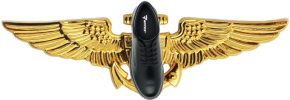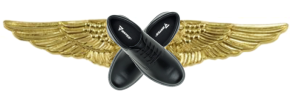As an additional data point AFAIK Marines transitioning to C130s skip the T44, even coming from helos.
-
Please take a moment and update your account profile. If you have an updated account profile with basic information on why you are on Air Warriors it will help other people respond to your posts. How do you update your profile you ask?
Go here:
Edit Account Details and Profile
You are using an out of date browser. It may not display this or other websites correctly.
You should upgrade or use an alternative browser.
You should upgrade or use an alternative browser.
FNAEB outcomes
- Thread starter colonial-aviation
- Start date
We had a jet FRS wash join our P-8 squadron. He’s going I think right from his sea tour into his DH tour because he was also affected by the NOBOGS situation and his timing was super bad. That being said, P-8 life is sweet. One thing that you’ll have to accept is you won’t be singing for the plane for about 18 months. There’s 3 of you in the cockpit and we operate off a “FRS makes you safe to fly as a warm body, but it’s the squadrons job to make you a tactical patrol plane commander.” This is a bit of a shift from the jet world where it’s single pilot - single point of failure.
Last edited:
Sweeter than I even imagined.P-8 life is sweet. One thing that you’ll have to accept is you won’t be singing for the plane for about 18 months.
She was my skipper, damn fine American.Served with a female VP pilot who started off as a Tomcat pilot. Operating around the boat, specifically at night was a bridge too far. She went on to Major Command - one of the finest officers I served with. Not being a part of the CVW is not the end of the world . . .
That was my understanding of how this timing could look. I was told that because of this my chances of being accepted by another community were low, but I also know how badly every community needs O-4s. As I understand in P-8s mission commander is reached during a pilot’s first fleet tour.
As for DH mentors the ones I’d talk to in my current squadron are the ones who told me to consider DOR’ing and redesignating rather than go through a FNAEB.
Sounds like the DHs didn’t want to deal with the headache of opening the training program to the scrutiny of a FNAEB, or didn’t have the vision to see you be a successful Naval Aviator. Either way their advice was not in your best interest and the path you chose was much more work for the squadron. Feel free to ask them whatever, but take their answers with a grain of salt. You should find new DH mentors once you get your new community.
Your career timing is not good for the AD Navy, however it’s not bad for a Selres/FTS gig at the end of your commitment and an airline transition. I wouldn’t worry about career timing until you get to your fleet squadron because you really won’t know what it looks like until you get there. Then you can have a discussion with your front office about what you need to do to be successful in the squadron and in your new community. They would have some sway over how to get you back in path as much as possible.
Mission commander is not a required qualification in the MPRA community. It's ACTC 400MC and a prerequisite for instructor. There must be an MC every flight but it can be filled by an NFO. If theres two MCs the policy is up to the squadron but to keep it fair it's either whoever is senior in timing in the unit, senior as MC timing, or if they are a guest on the assigned aircrew or not.
PPC is required after 18 months. Everything past that is up to the skipper if you can do an MC board. Most do, usually only those who qualify late or have a weak tactics decision making skills aren't afforded the invitation to do an MC board.
PPC is required after 18 months. Everything past that is up to the skipper if you can do an MC board. Most do, usually only those who qualify late or have a weak tactics decision making skills aren't afforded the invitation to do an MC board.
colonial-aviation
Well-Known Member
It stung because these guys are people I respect. In any case, I’m grateful that the report said there was in unanimous agreement that I should continue flying another platform and I hope that that opinion is shared as my case moves up the chain.Sounds like the DHs didn’t want to deal with the headache of opening the training program to the scrutiny of a FNAEB, or didn’t have the vision to see you be a successful Naval Aviator. Either way their advice was not in your best interest and the path you chose was much more work for the squadron. Feel free to ask them whatever, but take their answers with a grain of salt. You should find new DH mentors once you get your new community.
Your career timing is not good for the AD Navy, however it’s not bad for a Selres/FTS gig at the end of your commitment and an airline transition. I wouldn’t worry about career timing until you get to your fleet squadron because you really won’t know what it looks like until you get there. Then you can have a discussion with your front office about what you need to do to be successful in the squadron and in your new community. They would have some sway over how to get you back in path as much as possible.
Yeah, that's not a thing. Counterpoint: Perhaps the DHs were best positioned to make an assessment on this person's viability as a pilot in any context.Sounds like the DHs didn’t want to deal with the headache of opening the training program to the scrutiny of a FNAEB
Not how it works in the TacAir world. Failure to achieve ACTC Level III during your first tour means your flying days are likely over.Mission commander is not a required qualification in the MPRA community. It's ACTC 400MC and a prerequisite for instructor. There must be an MC every flight but it can be filled by an NFO. If theres two MCs the policy is up to the squadron but to keep it fair it's either whoever is senior in timing in the unit, senior as MC timing, or if they are a guest on the assigned aircrew or not.
PPC is required after 18 months. Everything past that is up to the skipper if you can do an MC board. Most do, usually only those who qualify late or have a weak tactics decision making skills aren't afforded the invitation to do an MC board.
colonial-aviation
Well-Known Member
Well every witness believed I’d do well in a multi-piloted aircraft and the board agreed. The DHs’ advice to go the POCR route was based on their doubts that I’d be able to transition at all, not whether I’d be successful in another platform.Yeah, that's not a thing. Counterpoint: Perhaps the DHs were best positioned to make an assessment on this person's viability as a pilot in any context.
Why don’t you just tell us precisely what you did in the jet that undermined your leadership’s trust in your abilities? That would make this a whole lot easier, no?Well every witness believed I’d do well in a multi-piloted aircraft and the board agreed. The DHs’ advice to go the POCR route was based on their doubts that I’d be able to transition at all, not whether I’d be successful in another platform.
And that makes sense, especially when you consider your DHs (likely) limited experience with both the FNAEB and POCR processes. It’s not a process your average VAQ DH would have seen play out, plus FNAEB is a big scary acronym that aviators try to avoid like the plague.The DHs’ advice to go the POCR route was based on their doubts that I’d be able to transition at all, not whether I’d be successful in another platform.
I agree with Brett that scrutiny of the training program would not be a reason for them to recommend against a FNAEB for you. It would have to be a corner case of your training officer, DHs, and front office all not doing their jobs for there to be any concerns about squadron training program dirty laundry being aired by in front of a board, plus you wouldn’t be the only one affected if that were the case.
Maybe not in VFA/VAQ but in VP it was a thing. Thats why there were plenty of guys who were qualified but didn’t sign for the plane. It was less headache for the command to pass them and bench them.Yeah, that's not a thing. Counterpoint: Perhaps the DHs were best positioned to make an assessment on this person's viability as a pilot in any context.
My second deployment there was a pilot who was coming on their time limit qualify as PPC. The command didn’t want to sign them off as PPC, but wanted the scrutiny of FNAEBing the person even less, so they worked with PERS to find a drug deal that would entice her to DOR so she could use one of the 14 languages she spoke growing up in Africa in another community. They were able to find something that enticed her and she DOR’d on deployment a week before they had to FNAEB her and they shipped her back to the beach det CONUS and she was no longer the commands problem.
Maybe not in VFA/VAQ but in VP it was a thing. Thats why there were plenty of guys who were qualified but didn’t sign for the plane. It was less headache for the command to pass them and bench them.
My second deployment there was a pilot who was coming on their time limit qualify as PPC. The command didn’t want to sign them off as PPC, but wanted the scrutiny of FNAEBing the person even less, so they worked with PERS to find a drug deal that would entice her to DOR so she could use one of the 14 languages she spoke growing up in Africa in another community. They were able to find something that enticed her and she DOR’d on deployment a week before they had to FNAEB her and they shipped her back to the beach det CONUS and she was no longer the commands problem.


As far as I am aware and have seen, it is in HSC and HSM as well.Not how it works in the TacAir world. Failure to achieve ACTC Level III during your first tour means your flying days are likely over.
